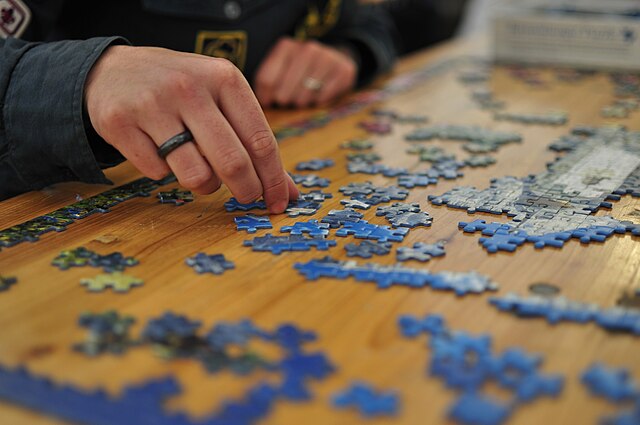Engaging in puzzles offers numerous educational benefits for children across various developmental domains. Here are some of the top educational advantages of incorporating puzzles into a child’s play:
Cognitive Skills:
- Problem-Solving: Puzzles challenge children to analyze and solve problems. They must figure out how the pieces fit together to form a complete picture, enhancing their problem-solving abilities.
- Critical Thinking: As children work on puzzles, they develop critical thinking skills, learning to reason and make decisions to complete the task at hand.

Fine Motor Skills:
- Hand-Eye Coordination: Manipulating puzzle pieces requires precise hand movements, helping children develop hand-eye coordination.
- Fine Motor Control: Picking up, grasping, and fitting puzzle pieces improve fine motor control, which is crucial for tasks like writing and buttoning.
Spatial Awareness:
- Understanding Space: Puzzles require children to understand how different pieces relate to one another and fit into a specific space. This promotes spatial awareness and an understanding of shapes and sizes.
- Rotation and Orientation: Rotating and orienting puzzle pieces to find the correct placement enhance spatial reasoning skills.
- Language Development:
- Vocabulary Building: Discussing the puzzle, describing the pieces, and talking about the images help build vocabulary and language skills.
- Following Instructions: Completing a puzzle often involves following instructions, reinforcing a child’s ability to understand and follow sequential steps.
Memory Enhancement:
- Visual Memory: Puzzles, especially those with intricate details or images, enhance visual memory. Children remember the features of individual pieces and how they fit into the overall picture.
- Pattern Recognition: Recognizing patterns in puzzles contributes to the development of memory and cognitive skills.
Persistence and Patience:
- Completing a Task: Working on a puzzle requires time and patience. Children learn to persist in the face of challenges and to stick with a task until completion.
- Delayed Gratification: Completing a puzzle provides a sense of accomplishment, teaching children the value of delayed gratification.
Social Skills:
- Collaboration: Working on puzzles with others encourages collaboration and teamwork. Children learn to share, take turns, and communicate effectively.
- Problem-Solving Discussions: Collaborative puzzle-solving often involves discussing strategies and sharing ideas, fostering social interaction and communication.
Mathematics Readiness:
- Shape and Pattern Recognition: Puzzles often involve recognizing and matching shapes and patterns, which are foundational concepts for mathematical development.
- Counting: Some puzzles may involve counting pieces, reinforcing basic counting skills.
Emotional Development:
- Sense of Achievement: Completing a puzzle provides a tangible sense of achievement, boosting a child’s self-esteem.
- Emotional Regulation: Overcoming challenges in puzzles helps children develop emotional regulation as they cope with frustration and celebrate success.
Creativity and Imagination:
- Storytelling: Puzzles with narrative themes can inspire storytelling. Children may create imaginative stories around the images they assemble.
- Visual Discrimination: Examining and connecting puzzle pieces contribute to visual discrimination skills, enhancing a child’s ability to notice details.
Incorporating a variety of puzzles into a child’s playtime offers a holistic approach to learning, promoting cognitive, physical, and socio-emotional development. The diverse skills developed through puzzle-solving contribute to a well-rounded educational foundation for children.











